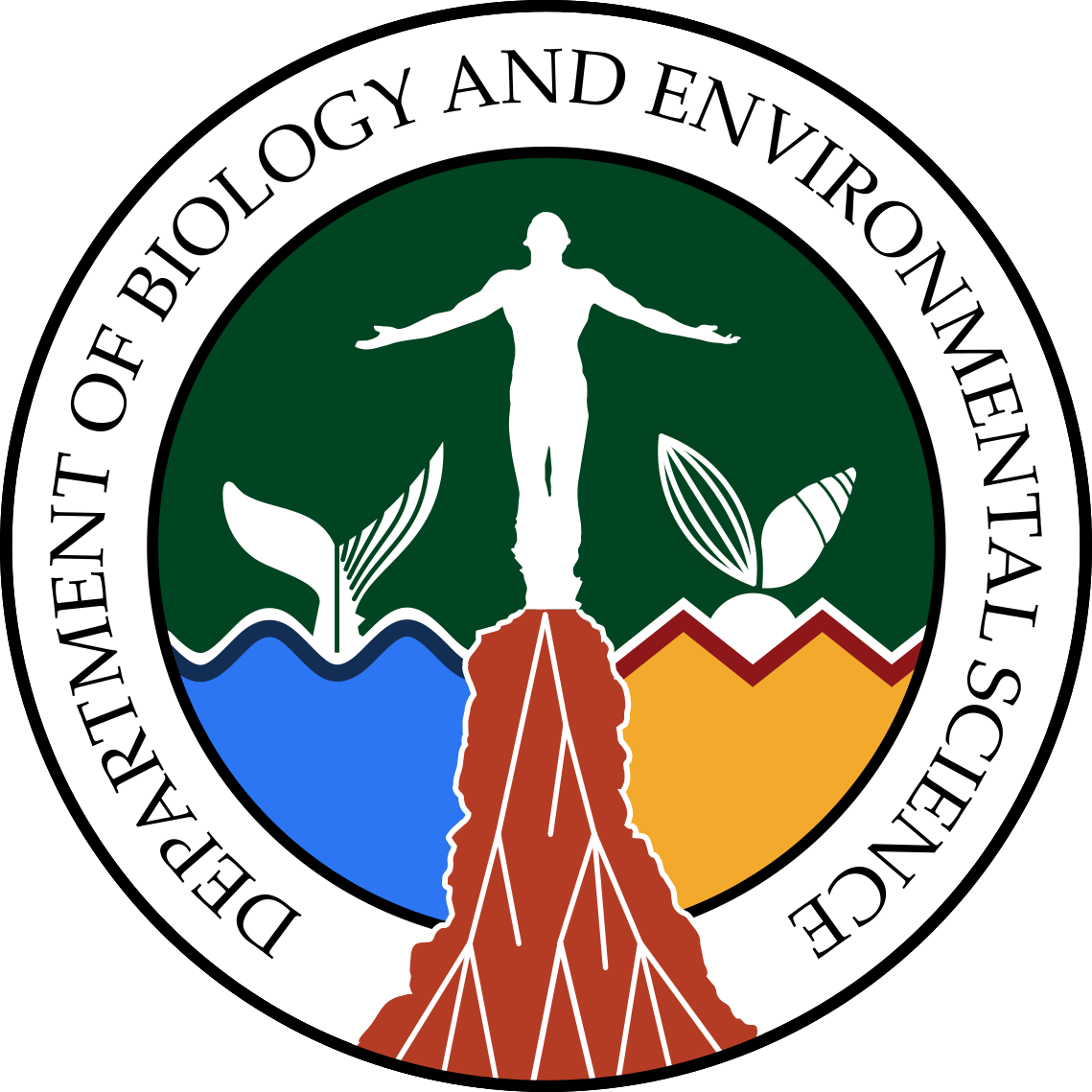
Department of Biology and Environmental Science
Vision
A premier institution of transformative and innovative instruction, research and public service in biological and environmental sciences.
Mission
To discover, build and enrich knowledge for science and society (DBES).
BS Biology
The Bachelor of Science in Biology curriculum incorporates specialized, interdisciplinary applied courses, and current trends in biology that are Information and Communications Technology (ICT)-enabled.
The curriculum puts emphasis on research by including courses that reflect modern innovation and strategy in instruction and research, focusing on the biology of organisms and the environment. It also offers relevant choices in electives geared towards organismal biology (combines taxon-specific biological science with recent advances in experimental methods, molecular biology, and integrative organismal system) and environmental biology (provides strong foundation in biological, chemical and physical sciences focused on natural resources) as an answer to the heightened concern for the local and global environment.
The curriculum provides options for a wide variety of career opportunities for the graduates, such as in the academe; in research institutes and laboratories; and in industries in which biological knowledge and practices are used, including biotechnology, food, health, agricultural and environmental organizations, government and regulatory offices, and intellectual property offices.
MS Environmental Science
The Master of Science in Environmental Science (MSES) program offers advanced scientific and quantitative perspectives from the natural sciences in the study of the environment. It adopts a rigorous academic and scientific approach, anchored on the principles, concepts and techniques of environmental science, to prepare students for post-graduate studies and careers as researchers, educators, planners, and managers in the discipline. As an interdisciplinary program, students will acquire high-level competencies to critically examine environmental drivers and find innovative solutions to complex challenges, while still maintaining an appreciation of the human-environment interaction.
